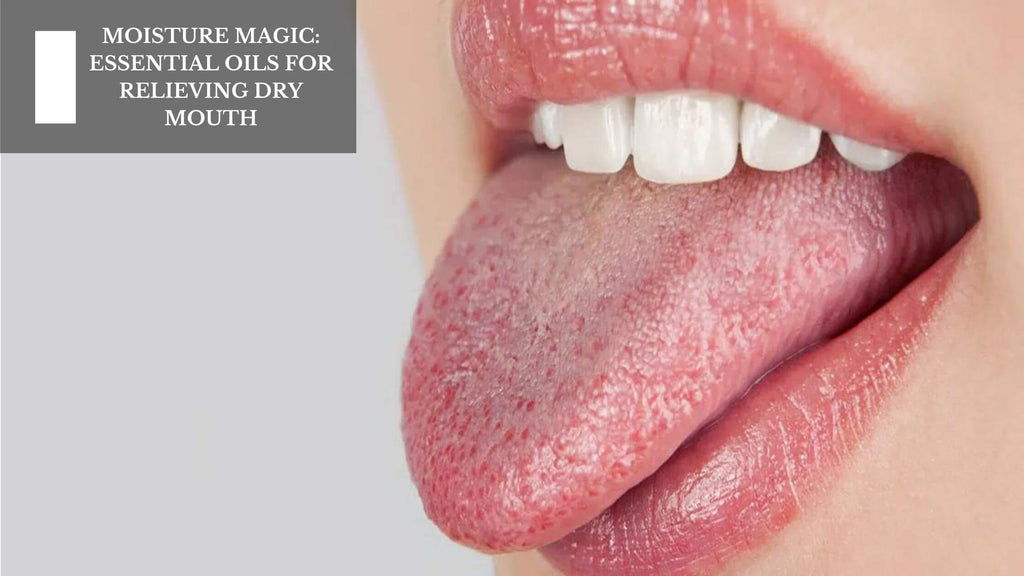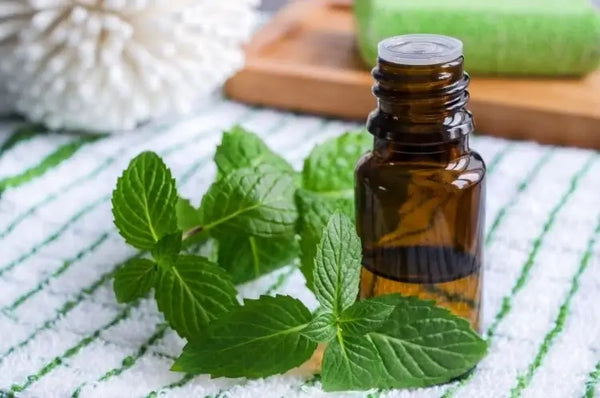Moisture Magic: Essential Oils For Relieving Dry Mouth

A dry mouth can be an annoying and uncomfortable condition to deal with. It can cause trouble speaking, difficulty swallowing, and even bad breath. Sometimes, no matter how much water you drink, the dryness just won't go away. Fortunately, there are natural remedies that can help you soothe dry mouth and make you feel more comfortable. Essential Oils have been used for centuries for their therapeutic benefits, and they can be especially helpful for alleviating dry mouth symptoms. Understanding the common causes and symptoms of dry mouth is crucial in finding effective solutions. One of the main causes of dry mouth is medication. Certain prescription and over-the-counter medications can have the side effect of reducing saliva production. Antidepressants, antihistamines, and diuretics are just a few examples of medications that can contribute to dry mouth. Another common cause of dry mouth is dehydration.
You may also like:
When the body does not have enough fluids, it can affect saliva production. This can happen due to inadequate water intake, excessive sweating, or certain medical conditions that cause fluid loss. One of the primary benefits of using essential oils is their ability to stimulate saliva production. A dry mouth occurs when there is a decrease in saliva production, leading to a thirsty, uncomfortable feeling. Essential oils such as peppermint, lemon, and eucalyptus have properties that can help stimulate the salivary glands, promoting saliva flow and providing much-needed moisture to the mouth. Additionally, essential oils possess antimicrobial properties that can help fight against oral bacteria. Dry mouth can often lead to an increase in harmful bacteria, which can cause bad breath and other oral health issues.
Best essential oils for preventing dry mouth
1) Lavender essential oil
Lavender essential oil is not only known for its beautiful scent and relaxing properties but also for its ability to soothe and moisturize dry mouth. Lavender Essential Oil, with its natural calming properties, can help alleviate the discomfort associated with dry mouth. When used as a mouthwash or added to water for gargling, it can provide relief by moisturizing the oral cavity and stimulating saliva production. The moisturizing effects of lavender essential oil are due to its natural emollient properties. It helps to hydrate the mouth and throat, reducing the dryness and promoting saliva flow. Additionally, lavender's soothing aroma can help relax the muscles in the mouth and throat, providing further relief from discomfort. To use lavender essential oil for dry mouth, simply add a few drops to a cup of warm water and use it as a mouthwash or gargle. You can also dilute it in a carrier oil, such as coconut or almond oil, and apply it topically to the lips and inside the mouth for added moisturization.
2) Eucalyptus essential oil
Eucalyptus essential oil is a powerhouse when it comes to soothing dry mouth. Known for its refreshing and invigorating scent, this essential oil has been used for centuries for its medicinal properties. One of the key benefits of eucalyptus essential oil is its ability to promote saliva flow. When dealing with dry mouth, the lack of saliva can be a major discomfort. eucalyptus essential oil helps stimulate the salivary glands, increasing the production of saliva and providing much-needed relief. Additionally, Eucalyptus Essential Oil possesses antibacterial properties that can combat the bacteria responsible for bad breath and oral health issues. By using eucalyptus essential oil as part of your oral care routine, you can help keep your mouth fresh and clean, reducing the risk of infections and dental problems.
3) Clove essential oil
Derived from the buds of the clove plant, this essential oil is packed with beneficial properties that can help soothe and alleviate the symptoms of dry mouth. Clove Essential Oil is highly effective in combating dry mouth because of its potent antimicrobial properties. It helps to eliminate harmful bacteria and fungi that can contribute to dry mouth and oral health problems. By reducing bacterial growth in the mouth, clove essential oil promotes a healthier oral environment, preventing further discomfort and complications. Additionally, clove essential oil possesses analgesic properties, which can provide temporary relief from the pain and irritation associated with dry mouth. It has a numbing effect that can help alleviate the discomfort and soreness caused by dryness in the mouth.
4) Peppermint essential oil

Known for its refreshing and invigorating properties, peppermint essential oil has been used for centuries to help stimulate saliva production and provide relief for dry mouth symptoms. Peppermint Essential Oil's cooling sensation and minty aroma can instantly awaken and refresh your senses. When used in aromatherapy or applied topically, it can help stimulate the salivary glands, encouraging them to produce more saliva naturally. To use peppermint essential oil for dry mouth, you can add a few drops to a diffuser or vaporizer and let the refreshing scent fill the air. Inhaling the aroma can help stimulate saliva production and soothe the discomfort caused by dry mouth.
5) Spearmint essential oil
Known for its refreshing and invigorating scent, spearmint essential oil offers a range of benefits when it comes to oral health. One of the main advantages of using spearmint essential oil is its ability to stimulate saliva production naturally. A dry mouth can be uncomfortable, and a lack of saliva can lead to issues such as bad breath and difficulty swallowing. By incorporating spearmint essential oil into your oral care routine, you can help combat these symptoms and promote a healthier, more comfortable mouth. Additionally, Spearmint Essential Oil possesses antibacterial properties that can help fight bacteria in the mouth. This is crucial for maintaining good oral hygiene and preventing tooth decay and gum disease. By using spearmint essential oil, you can freshen your breath and keep your mouth feeling clean and revitalized. Using spearmint essential oil to soothe a dry mouth is simple. You can add a few drops to a glass of water and swish it around in your mouth for a refreshing mouthwash.
You may also like:
FAQs
1) What methods can be used with essential oils for dry mouth?
Gargling with essential oils can provide relief for dry mouth symptoms. Create a gargling solution by adding a few drops of essential oil to warm water. Swish the mixture in your mouth for about 30 seconds before spitting it out. Peppermint, eucalyptus, and tea tree oils are excellent choices for this method. Oil pulling is an ancient practice that involves swishing oil around in your mouth to remove toxins and improve oral health. Coconut oil is commonly used for oil pulling, but you can enhance its effects by adding a drop or two of essential oil. Tea tree, lavender, and clove oils are popular options.
2) How to practice good oral hygiene?
Maintaining a thorough oral hygiene routine is crucial for managing dry mouth. Brush your teeth gently with a soft-bristled toothbrush, floss daily, and consider using a fluoride mouthwash to help prevent tooth decay and maintain oral health. Stimulating saliva production can alleviate dryness. Chewing sugar-free gum or sucking on sugar-free candies can help increase saliva flow and provide temporary relief.


Leave a comment